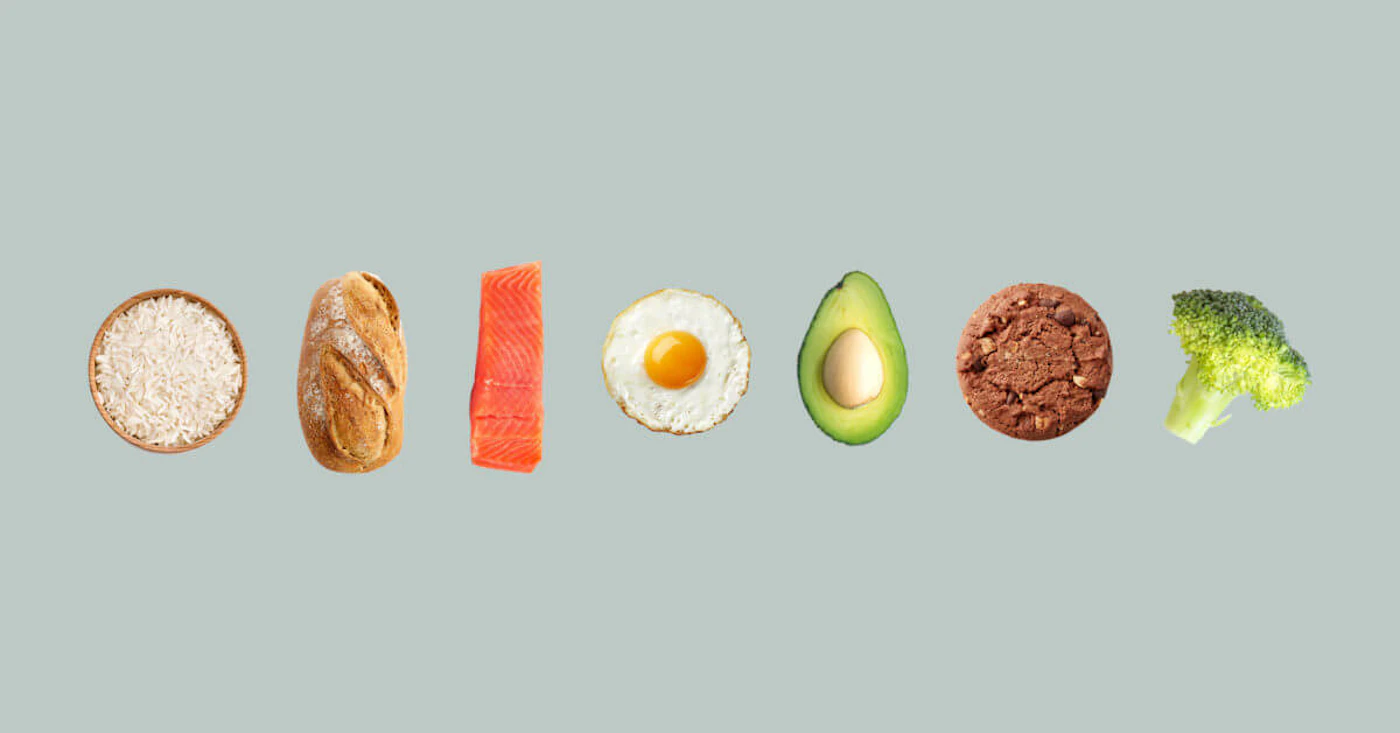Food scarcity, economic difficulties, fear of weight gain, and uncertainty about the future have culminated in noticeably increased disordered eating throughout this pandemic, whether an eating disorder is diagnosed or not. A nutritionist shares how to navigate that anxiety.
As the world spirals with uncertainty, there is an overwhelming sense of powerlessness, which can be a difficult feeling to sit with. As a result, many of us are drawn to exert our autonomy and power elsewhere: eating and exercise.
Anxiety can disrupt hunger signals, leading to skipped meals or inadequate intake, which many view as a positive in our fatphobic culture. Yet, this behavior only exacerbates anxiety because low blood sugars can promote anxious thoughts and sensations. This isn’t a great cycle to be trapped in any time, much less a pandemic. Eventually the other shoe drops and people find themselves reaching for all the nutrition they’ve denied their bodies—and then feel guilty about it.
In my work as a Registered Dietitian, I often see this restrict-binge cycle occurring on a daily basis where folks wake up ready to “be good” (aka, restrict) and then find themselves feeling out of control around food in the latter half of the day. This only reinforces the idea that the individual cannot trust themselves around food, so they buckle down to do better the next day.
With COVID-19 ravaging the world, anxieties have swelled, exacerbating underlying eating issues and behaviors similar to eating disorder behaviors. We are staying at home, practicing social distancing, and washing our hands religiously. But we crave more tangible actions, something that feels more productive than sitting idly—so many of us turn to fighting fat. Overwhelming evidence informs us that the vast majority of people who lose weight cannot keep it off for more than two to five years and that the subsequent weight cycling people endure is a major health concern.
Despite these troublesome issues, engaging in dieting behaviors provides a distraction that feels good. Beyond feeling like we are taking positive actions for our health, restriction and eating far past the point of fullness leads to uncomfortable sensations that can numb us to the troubles of the world.
RELATED: Are You Feeling Overwhelmed by the Coronavirus Outbreak? Read This.
Food scarcity, economic difficulties, fear of weight gain, and uncertainty about the future have culminated in noticeably increased disordered eating throughout this pandemic whether an eating disorder is diagnosed or not. Given that we cannot survive without food, our bodies developed intense physiological reactions to perceived famines that encourage us to seek out food.
It’s not a lack of willpower when you “cave” and eat a cookie after a day of restricting carbohydrates—that’s our body’s survival response kicking in.
With actual or perceived deprivation, our bodies respond by:
- Increasing thoughts about food or food preoccupation. You might recognize this as a new interest in cooking, cooking shows, or seeking out recipes.
- Making hormonal adjustments that increase appetite and the amount of food needed for us to feel full
- Increasing our desire for and consumption of energy rich foods (i.e., we’re not usually desiring celery sticks when we missed breakfast and lunch)
- Developing a craving for previously unappealing foods
- Increasing feelings of irritability, headaches, and dizziness (it’s uncomfortable to be hungry)
We are experiencing collective trauma with this pandemic, causing multitudes of emotional pain. Food insecurity and self-imposed restriction only augment this trauma.
Regular eating is paramount, which can be surprisingly difficult whether or not we are working from home. Practice self-care by keeping your body nourished—that’s the best way to support both your mental and physical health against this virus from a nutritional standpoint.
It can be challenging to know what normal eating looks like if you’ve been engaging in any sort of dieting. For most, eating balanced meals and snacks every three to four hours throughout the day supports stable blood sugars and minimizes anxiety. “Balanced” meals and snacks here means including multiple food groups, like complex carbohydrates, protein, fat, fruits and vegetables.
Given that many are finding it difficult to find all the groceries they need, it’s OK if your diet doesn’t look very varied or nutritionally dense right now. Our bodies are resilient.
I’ve encountered many people who do not feel their eating concerns are bad enough to warrant treatment, but the truth of the matter is our relationship to food is complicated. Now more than ever, if there are any concerns, getting help is the way to go. There are many weight-inclusive dietitians and therapists who specialize in eating disorders, disordered eating, and chronic dieting who can work with you virtually 1:1 to provide extra support during this trying time.
Here are just a few resources to get you started:
National Eating Disorder Association
Food Psych Podcast with Christy Harrison MPH, RD, CDN
Free Virtual Eating Disorder Support Group with Center For Discovery
In most cultures, food is used for connection—it’s love and it’s comfort. Many people identify as “emotional eaters,” as they eat in response to positive or even difficult emotions. If finding a small sense of comfort or joy comes from an extra helping of macaroni or a warm chocolate chip cookie, by all means give yourself permission to have these foods without guilt—and without feeling compelled to compensate for the calories via exercise. And, if that feels difficult or out of reach, know you are not alone. This is hard.




